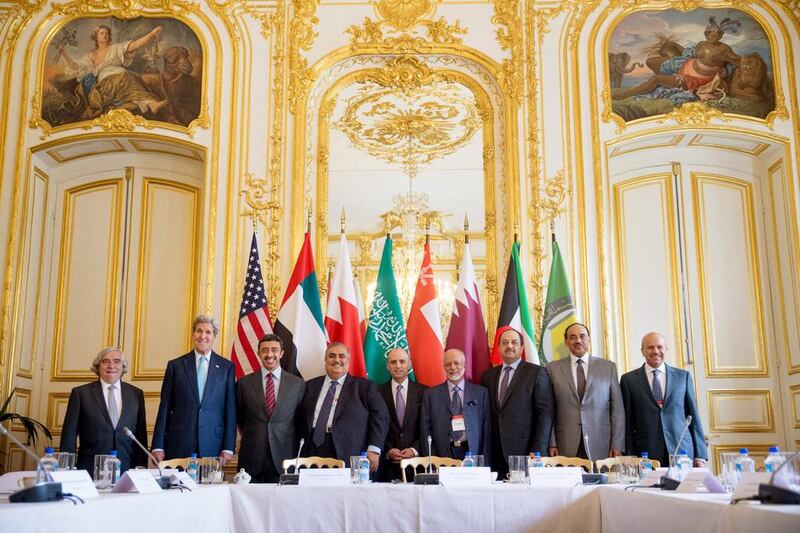The recent developments in relations between the US and Iran will be the focus of the meeting between president Barack Obama and the leaders of GCC countries from Wednesday. The summit will discuss the implications of the framework agreement on Iran’s nuclear programme signed in Lausanne last month.
Writing in the pan-Arab daily Al Hayat, Ghassan Charbel said that the US obviously did not play policeman, spend millions and spill more blood in the Middle East.
“On the other hand, it cannot wash its hands off this part of the world, not only because there is a need for oil security and the security of Israel, but also because of the implications for US security and that of the West,” he wrote.
“History has shown that the diseases that plague the Middle East are rather infectious. Should terrorism get implanted, it would threaten the safety of New York, Washington, Paris and Berlin, among other cities.”
He said it was no overstatement that the US-GCC summit at Camp David was an exceptional event and that it would have repercussions on the Middle East for years, possibly even decades.
“The summit is expected to go beyond the required distribution of minor compromises and bandages. The situation is so serious that it cannot be cured with painkillers and good wishes,” he added.
“The situation calls for the establishment of a new regional system that would tip the balance back to where it was and provide safety buffers that would put a stop to the meltdowns, coups and infiltrations,” he wrote.
“The problem between the GCC countries and Iran cannot be limited to the nuclear programme. Iran’s current role is the real problem as it threatens security in the GCC and the stability of Arab countries,” he said. “The GCC countries will demand the curbing of Iran’s regional role in parallel to the curbing of its nuclear ambitions.”
The seriousness of the situation goes beyond the creation of missile shields and deterrent arsenals for the GCC countries, he said.
“It is about the United States’ vision of its interests and commitments to its allies and how serious it is about containing the Iranian role in the region, as well as the US’s commitment to firm guarantees.”
In the pan-Arab daily Asharq Al Awsat, Salman Al Dossari described the Camp David summit as potentially the most important meeting between the US and the GCC countries in 50 years.
“It is not the first time that the US president will meet GCC leaders, but Washington is well aware ... that the US-GCC alliance is going through a phase of tension and distrust,” he noted. “The summit may be the opportunity to put the train of the historic alliance back on the tracks. It had deviated in the past few years.”
He said that this would give the US the opportunity to backs its words with actions. This would shed the doubts that have arisen about the US’s credibility, which is at stake in the region because of its “shaky positions” on the Syrian crisis, Bahrain, Egypt and Iraq, as well as its “mysterious and secret agreement” with Iran. “The US wants exceptional relations with the Gulf states and Iran at the same time,” he wrote, but added that “this is an impossible and incompatible equation”.
This is “not because the Gulf states are haters, but because the Iranian regime is hostile to its neighbours in the Gulf, and all its policies interfere in their internal affairs. That is the whole story” he concluded.
Translated by Carla Mirza
CMirza@thenational.ae





